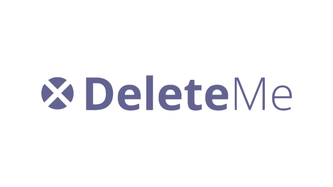In this review, we’ll talk about how you can secure your personal information more easily. Why is this important? Because your personal details are free and legal to gather and sell online, provided it is publicly available and was obtained legally. The kinds of personal details may include:
- Your name, age, sex, and family members
- Your email address or phone number
- Your address, images of your home, and estimated home value
- Your political affiliation
- Any court or legal activity that involves you
Data brokers regularly scrape and aggregate this from public databases, making it available for sale through broker websites. From there, it can show up on websites that work as data aggregators and in web searches.
Such sites don’t steal your personal info. Instead, they gather public information about you that anybody could find with a little digging and wrap it up in a neat package. And not just about you! Even lists of your family members and where they live might be available and accessible.
This can be serious as there is an obvious threat of hacking to worry about. Also, stalkers and/or harassers can easily use these sites. Plus, they sell your details to third parties to help them target and bombard you with ads. An even worse scenario is that you could even be the victim of fraud or identity theft.
You have the right to request that your contact information be removed from these sites, but you have to manually seek out the brokers, manually request removal, and then follow up on those requests. And, if you succeed, it may simply be added again as it is scraped from another source.
First launched in 2010, DeleteMe is a service that allows internet users to clean up their digital footprint by helping them to delete their details with leading data aggregators like Spokeo, BeenVerified, and Intelius. As a result, users can reduce what and the amount that appears about them in Google search results. It’s worth noting that it can’t actively remove you from Google search results. But when the operators remove your data from the aggregators, those sites won’t show up in search.
It automates the opt-out and removal process and then provides ongoing protection by conducting quarterly searches and providing you with a quarterly privacy report.
This reduces your online footprint, removes Google search results, protects your privacy, and may protect your online reputation. The service provides peace of mind in ensuring that sensitive details about people are not sitting around on servers waiting to be hacked.
How Easy is it to Use Abine DeleteMe?
It’s extremely easy to use. On its landing page, it states that the service works through 4 steps: 1) you sign up and submit names for removal, 2) operators search and remove, 3) a removal report is sent in 7 days, and 4) Abine continues to remove your data quarterly.
There’s a little more to it than that. You sign up for the service and then provide them with all of your personal details. This may include your name, previous names, or alternate spellings of your name, your date of birth, gender, email address, phone numbers, social media accounts, court records, photos – and even photos of your home, and more.
You have to verify your identity by sending Abine a scan of a government-issued identification document. You can redact key portions of this scan, according to the Abine instructions, but it is necessary to authenticate your identity.
DeleteMe then sends you an initial report within 7 days. They search data aggregator sites people, and the report includes what was found and whether, and what action has been taken on your behalf. When you are found on these sites, it completes the opt-out request for you.
Every 3 months, DeleteMe repeats the process, searching data aggregators by your name and opting out of these sites if it identifies you. You then receive a privacy report.
How Does DeleteMe Work?
After subscribing, a user submits everything about themselves that they want to have removed from aggregator databases. The site asks users for details such as their name, or names they have previously been or are known by (maiden name, common misspellings, aliases, etc.) address, date of birth, phone numbers, etc.
Users can add as many addresses, names, emails, and phone numbers as they like, and if they forget any details relating to themselves, they can start another ‘campaign’ once the first is done. After, users have to take a photo and must upload, email, or fax a picture of their primary identification card. This can be a passport, driver’s license, or another state-issued ID, and to verify their identity; that they are who they say they are. So have your main ID card handy and be sure to mask the photo and numbers in the ID card you upload for added security. This redacted version of your ID – is compulsory so as to remove you from some services.
It takes a little bit of time, around 30 minutes to go through the registration process.
It would definitely help to compile a list of what you need in advance, including a form of identification document, your previous addresses, and phone numbers you’ve used. You’re then directed to a confirmation page with all the information you’ve entered during registration. One thing that we noticed was that there isn’t a place to enter any past emails before getting to this stage; a possible improvement that should be considered.
After hitting ‘enter’ to confirm, a page pops up telling you that your privacy protection program is in process and that your first report would come in 7 days. The next report after that would come the following quarter.
It can feel a little uncomfortable or even personally distressing to give your personal information to a website, especially if you’ve previously been harassed online. And of course, handing your sensitive personal data to yet another site may appear to be counterproductive to the final aim and your desire of gaining privacy. However, this really is the only way that the service can delete similar and, don’t forget, even more from other sites. Therefore, it is reasonable and in fact necessary if you actually want the service to function.
Once you’ve done this you will receive an email verification. Check your spam folder for the confirmation email, in case it goes there as it did for us. You then have to click on the account icon, which requires you to log in again, so have your password handy, or better still use a password manager.
Once DeleteMe has your details, it begins the process of asking data brokers to remove you from their databases. This is done by sending an ‘opt-out’ request asking for your data to be removed from those services.
Submitting your personal information starts your first campaign. Users can choose to request to delete as much about themselves as they like, which they can add to as they go along. This helps ensure that any previous addresses, or multiple addresses – if they own more than one home for example – are successfully removed.
The webpage states that you should “be sure to include all previous addresses you would like removed! We cannot remove a profile with an address that is not included here. If you can’t remember the full address, simply provide the city and state.”
Have a credit report handy or some other documentation of your past addresses, as you have to wait until you’ve received the report for your initial, or subsequently any ongoing request, before you are able to add anything extra to your campaign.
If you’ve already received your first report with items missing because you didn’t request them to be removed, you can ask for an ad-hoc report from our support team for this. After which, it will then be included in all future reports.
So, you cannot update your campaign until you’ve received the report, and it’s been dealt with in the original form that you submitted. Therefore, take care to get it right the first time.
Provide (all) your name(s) including any that you have previously been or are known by (maiden name, common misspellings, aliases, etc.) address, date of birth, phone numbers, etc. that you want deleting before pressing enter and sending to the service.
Once the initial campaign, plus any ad hoc one, has been completed and achieved, it will check every three months to see if data aggregators have regathered details about you. If they have, the process will be repeated to ensure that it is again deleted from those databases. Subscribers get a detailed status report after each removal campaign, clearly stating exactly what has been removed and from what services.
Users can also add as many people to their accounts as they like. But each new individual must be paid for separately, one at a time.
It is worth noting that this is all something that you could do yourself. You are simply paying for convenience, saving you admittedly quite a bit of time and effort. You are not receiving an exclusive service with results that can’t be achieved elsewhere.
Also, while DeleteMe claims to do the service for a year, it is actually deleting your data four times throughout that year; when you join, and then after three months, six months, and after nine months. It is not doing so as a single continual process, and you can reappear on these sites during those periods. After the fourth check, a year will have passed, and it will be time for a new subscription to be paid.
How Effective is Abine DeleteMe?
There are very few comparable services online, so it is difficult to compare DeleteMe to a competitor. Similar services search fewer data aggregate sites, and use automated processes rather than human ones, so there is less reliability and follow-through. For subscribers who decide to invest in a subscription, DeleteMe currently removes users from approximately 38 sites in total.
These are primarily US-based. This is because it’s a US-based service, and you’re to be removed from Western data aggregation services. Anything about you held by overseas brokers may not necessarily be successfully removed. This limitation of the service may mean that it appeals to US residents more. Although while engaging in the necessary research to attempt to find your details online, if the agent who handles your account is able to find you on any service where it can be removed – all effort to remove it will be made. Also, worth noting is that US websites often hold data about foreign residents, so DeleteMe is still useful even if you are not a US resident.
However, subscribing doesn’t mean that all data broker sites no longer have access to my information. This is because “some sites do not offer an opt-out procedure,” since they are either based outside of the U.S. or “collect their information from social networks, public search results,” and other search databases. It also cannot delete Google search results or blog posts, articles, or legal records, but they do have a free online guide to help you do this on your own.
DeleteMe employs operators who handle the opt-out process. It isn’t a simple automated process. As promised, I got my first privacy report 7 days later. It noted that some aggregators respond immediately, while others are much slower. It stated that 11 sites listed required up to six weeks to remove my information. In fact, only two sites removed my information as soon as the opt-out request was sent. For the more responsive sites, about half of them, it keeps scanning for your info on a regular basis. For the rest, it checks before each quarterly report.
Most negative reviews stem from the mistaken belief that the service erases people from the internet entirely. As a result of using the service, subscribers will only not appear in online search results. That is unless the search results are from what is contained on legitimate website services where it was provided by the user directly and willingly – or when it appears on news websites for some reason. For these removal requests, removing search engine results will involve invoking the “right to be forgotten” (not currently available in the USA – but is available in the EU).
Europeans have this right. But it’s one that is based on the age of the record, not the nature of it. Furthermore, removing yourself from the internet would be an ongoing process. Removing yourself from one site one time doesn’t mean that those records and databases won’t be scraped again, perhaps by a new aggregator, and reappear after a period of time.
To erase yourself entirely from the internet is virtually impossible. In the first place, it requires emptying and deleting any and all online accounts in your name, including LinkedIn, Facebook, and any other sites and services you use. Even then, in the United States, many court proceedings, property records, etc., are public records and available to be searched and published.
Europeans have the “right to be forgotten,” which is based on the age of the record, not the nature of it. Furthermore, removing yourself from the internet would be an ongoing process. From one site one time doesn’t mean that those records and databases won’t be scraped again, perhaps by a new aggregator, and reappear after a period of time.
So, it’s worth noting that it’s not a service that magically makes you disappear from Google search results. But instead, it’s a solution that is designed to remove you from data aggregators only. This has the secondary effect of making some of your personal details disappear online, but ONLY on sites where the internet user never agreed for it to be shared in the first place.
In other words, a service like DeleteMe can only remove a certain amount of data, particularly when you continue to use online accounts and engage in public transactions, it may reappear after some time. It only reduces your online search results, but it will not eliminate them altogether.
Effective while you use it, removing yourself online is a manual, laborious, time-consuming process, and people who have used the service with the correct expectations have appreciated it very much.
That said, it is worth noting in its favor, that using DeleteMe is not difficult. In fact, we’d call it simple and user-friendly. There’s not much reason that would need to contact customer support, but during US business hours (Monday-Friday 09:00-17:00 Eastern Time) users can ask questions via live chat on its website. Outside of these hours, if you do have a problem or can’t understand something, the website has a contact form and help center that is filled with useful FAQs. We tested out the contact form, and are pleased to inform you that we received a response very quickly. So, you should have no trouble getting answers to any questions that you might have about using the service, even if the live chat is closed.
How is Abine DeleteMe’s Pricing?
For internet users who want to take advantage of the service, there are three distinct subscription plans:
- A basic plan will permit one internet user to remove their information from such data aggregator websites for one year. This plan costs the equivalent of $10.75 per month ($129 billed annually).
- Users who opt to pay $19.08 per month ($229 billed annually) can delete two people from such broker sites for a year.
- For $27.42 per month ($329 billed annually) you can delete for a family of four for a year.
- Finally, users can opt to pay for two users for two years at a cost of $14.99 per month ($349 billed biennially).
It’s fairly expensive, as online services go. It costs $129 for one person for one year, and $329 for a family of four for one year, which is far from a small change. It’s because of the human factor that it costs as much as it does. It’s not simply, or a simple automated system. Its operators actively opt you out from the most active and invasive personal data aggregators, and they keep watch that they don’t pick it up again.
There are discounts available for purchasing two years at a time, and business plans have customized pricing. But remember, it isn’t doing anything that you couldn’t do yourself, provided you had the time and resources to devote to it, which is perhaps why some feel that the price is excessive.
And, because remaining off these data aggregators is an ongoing process, that requires regular checks to see whether you have been re-added, it is not available as a one-time purchase. Instead, if you’re genuinely concerned about being removed from appearing on aggregating sites and search results must pay for the service indefinitely. This is a large disadvantage of this kind of service in general, not just limited to DeleteMe, and means that keeping off broker sites is going to be an ongoing expense.
However, if you consider the value of your own time, searching 20-30 data aggregators, and then complete the request form to have your name removed from these sites, every three months, it’s not that expensive. Seen that way, it’s only $32.25 per quarter, and saves you hours of manual searching.
There’s also no guarantee my information won’t get reposted on data broker sites if I let my DeleteMe subscription lapse. And I don’t necessarily want to fork over $120 a year indefinitely. So, definitely consider cost constraints when you’re deciding whether or not to use the service.
How Easy is it to Cancel Abine DeleteMe?
It is extremely easy to cancel. In fact, if you pay a year in advance, but cancel after a single quarter, they will refund the $96.75 balance to you. Remember that the subscription automatically renews every year, so perhaps set a reminder if you want to cancel automatic renewal.
Would I Recommend Abine DeleteMe?
Many people are understandably concerned about their online privacy, security, and reputation. The truth is, as long as it’s freely available and possible to profit from, there will always be sites that trade in your personal information. As yet, there is no perfect method that allows a person to benefit from the experiences and interactions possible online, while still protecting their privacy and security.
Until that day, DeleteMe promises to delete your personal details from dozens of the most popular personal data aggregators. As such, it’s billed as an excellent tool for exerting some control over your online presence and restricting the availability of your information.
Searching for a name and address online usually results in either full or partial results appearing on data aggregator websites. Usually, they’ll redact some of the information while still making it obvious that the correct person has been found. They’ll then ask the searcher to pay to see the entire file for that person.
By signing up to DeleteMe, these kinds of searches should result in no details appearing on any of these broker sites, meaning that your data is no longer for sale. But does it work?
Following our initial campaign, we found that it was indeed much harder to find. All of the broker sites that had been contacted had at least processed DeleteMe’s request, resulting in a much reduced digital footprint.
Is DeleteMe Legit?
Yes, it’s fully legit as it’s just performing searches of already publicly available data. Then it simply requests, checks, and exerts the opt-out processes that are already legally in place.
What is concerning however is that there are some potential concerns surrounding its US base. In order to perform its service, you must directly provide DeleteMe with your personal data. This means that Abine means is getting a lot of sensitive information about you that it could potentially pass to the US government.
The US is not considered a good location for a privacy service to be based. That’s because of the numerous warrants and gag orders that allow the government to force companies to not only retain and provide everyone’s personal details to government intelligence agencies but also to do so in absolute secrecy.
It’s possible that DeleteMe has already been served a warrant forcing it to retain everything that you provide it with. And potentially even more worryingly, forwarding it to the US government. What’s more, there’s no way of even knowing if this were the case.
From this point of view, it would definitely be better if it were based in Switzerland or the Netherlands as countries that have considerably better privacy protections for consumer data. In those countries there simply isn’t the possibility of it being secretly collected by the authorities without you being explicitly informed. Admittedly, however, this will only concern people with particularly elevated threat models, or with things to hide!
With any privacy concerns in mind, you should of course look at its privacy policy to see what guarantees it provides. The privacy policy promises not to sell customer data and states that it will only be used by itself and its third-party contractors for the purposes of providing the service.
But it also explains that they will need to share your data with broker sites in order to have them delete it. A concern is that it states that these sights may “remove or suppress” that data. This could be problematic as it may potentially pass on some things that brokers and aggregators do not currently have.
The privacy policy also seems to imply that some of these brokers may “suppress” rather than delete your information. This means that, after a certain period of time, they may start processing your it again and potentially have extra snippets about you gained from DeleteMe themselves.
This is definitely a limitation of the service because while it can do everything in its power to ask for you to be deleted, it can’t actually guarantee that those brokers will completely delete all your data. It is possible that they may only put your information on hold.
In conclusion, whether you decide to subscribe to DeleteMe comes down to a few important considerations:
Can you afford it? Do you trust the US government and so can live with the possibility that your data may be intercepted by them and end up in their hands? And, whether you trust data aggregators to permanently delete your personal details rather than to just “suppress” them for a period of time.
And of course, the best way to protect your digital privacy is always to minimize who has your personal information in the first place.
DeleteMe Reviews
What other people complain about
If you want to limit what information is available about you online, then it’s fine. But if you’re facing online threats at that moment, it may be a bit of a slow process, and there are probably other steps you should take first.
Reviewers have complained about the pricing: that DeleteMe is expensive. Also, because remaining off these data aggregators is an ongoing process, that requires regular checks to see whether you have been re-added, it is not available as a one-time purchase and, in theory, at least, need to pay for the service indefinitely.
And of course, many reviewers have noted, and it’s worth doing so again, that this is all something that you could do yourself. You are simply paying for convenience. You are not receiving an exclusive service with results that can’t be achieved elsewhere.
The other people love
Many reviewers have said that their online privacy had massively improved using the service, meaning that the service works and does what it promises. Also, from when they signed up its list of covered sites grew substantially, providing better value.
Yes, you could make all the opt-out requests yourself, and keep checking back in case the site picks up your data again. But actually going ahead and contacting them to ask for you to be removed is a lengthy and painstaking process. For this reason, it is understandable if you prefer to pay DeleteMe instead.
For many reviewers, paying $10.75 per month has proved to be excellent value for money – especially for US residents whose data appears on a large number of these online brokerages. They say, that at a bit, more than $10 per month to have someone else handle that for you is worth the price.
DeleteMe Alternatives
For most reviews, we look to compare similar products and services. In this case, we can’t as we don’t know of any other service that does the job that DeleteMe does. This means that it is for you if you want to make it harder for unknown people and businesses to get your personal details.
Abine DeleteMe FAQ
Does Abine DeleteMe work?
Searching for a name and address online usually results in either full or partial results appearing on Even if they redact some of the information, they still make it obvious that the correct person has been found, so that they can ask searcher to pay to see the entire file for that person. By signing up to DeleteMe, these kinds of searches should result in no details appearing on any of these broker sites, meaning that your data is no longer for sale. But does it work? Following our initial campaign, we found that it was indeed much harder to find. All of the broker sites that had been contacted had at least processed DeleteMe’s request, resulting in a much reduced digital footprint.
Is DeleteMe Legit?
Yes, it’s fully legit as it’s performing searches of already publicly available data. Then it simply requests, checks, and exerts the opt-out processes that are already legally in place.
That said, there are some understandable potential concerns about its US base. The US is not considered a good location for a privacy service to be based. That’s because of the numerous warrants and gag orders that allow the government to force companies to not only retain and provide everyone’s personal details to government intelligence agencies but also to do so in absolute secrecy.
How do I get my personal information off the Internet for free?
Simply, you have to make all of the opt-out requests to data aggregator websites yourself, and keep checking back in case the site picks up your data again. But actually going ahead and contacting them to ask for you to be removed is a lengthy and painstaking process. You are simply paying for convenience, saving you admittedly quite a bit of time and effort. You are not receiving an exclusive service with results that can’t be achieved elsewhere.
Related Posts
 Best People Search Engines
Best People Search Engines![Best Employee Background Check [Our Reviews and Comparisons]](https://backgroundhawk.com/wp-content/uploads/2021/02/6-min-150x150.jpg) Best Employee Background Check [Our Reviews and Comparisons]
Best Employee Background Check [Our Reviews and Comparisons] Does Job Abandonment Go on Your Record?
Does Job Abandonment Go on Your Record? How Far Behind in Child Support Before a Warrant is Issued?
How Far Behind in Child Support Before a Warrant is Issued? Does the DMV Check for Warrants?
Does the DMV Check for Warrants? How Long Do Warrants Last
How Long Do Warrants Last![Best Landlord Background Check [Our Reviews and Comparisons]](https://backgroundhawk.com/wp-content/uploads/2021/02/Best-Landlord-Background-Check-min-150x150.jpg) Best Landlord Background Check [Our Reviews and Comparisons]
Best Landlord Background Check [Our Reviews and Comparisons] What Is a Capias Warrant
What Is a Capias Warrant How Long Does First Advantage Background Check Take?
How Long Does First Advantage Background Check Take? What Does Decisional Mean On A Background Check
What Does Decisional Mean On A Background Check


